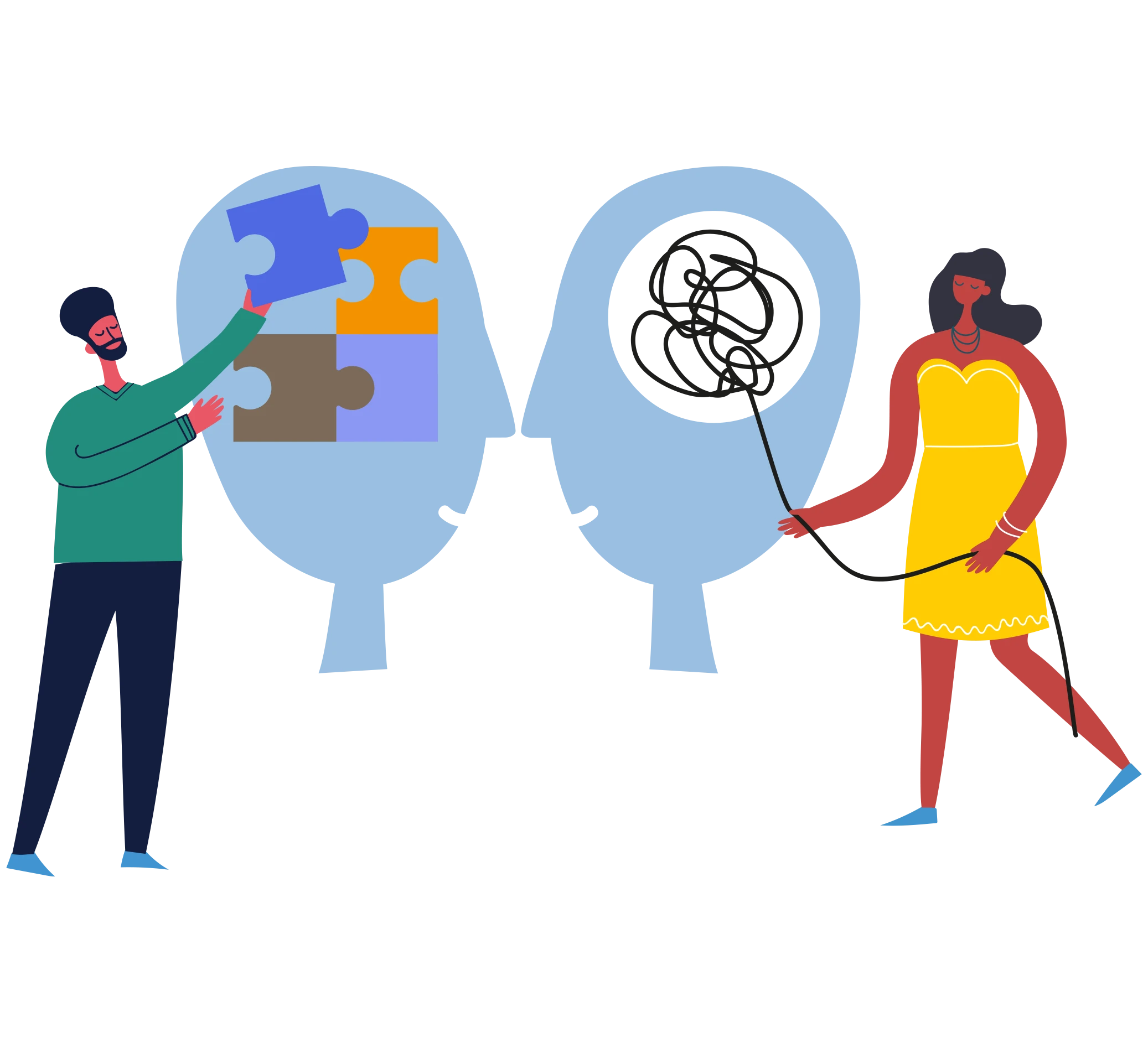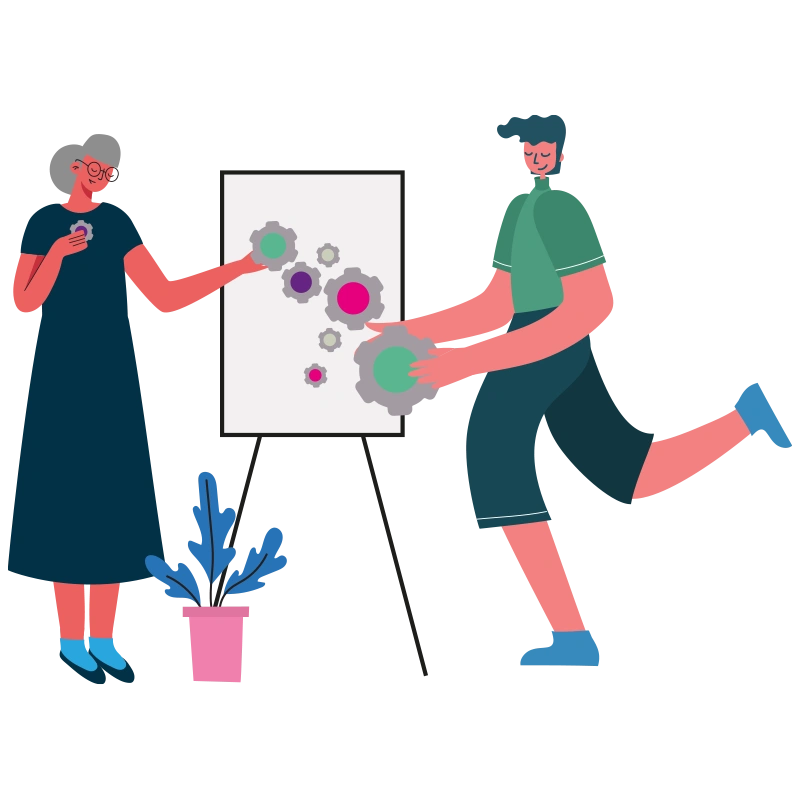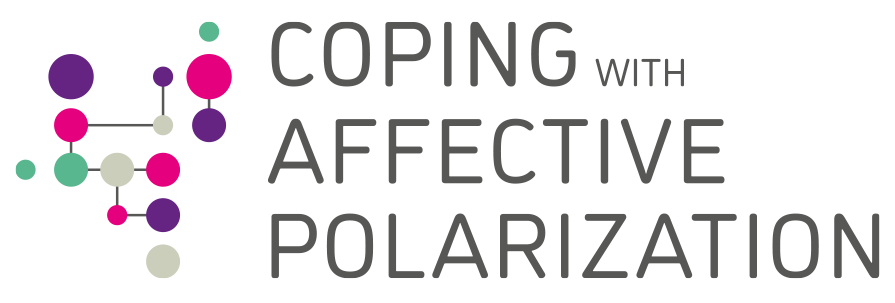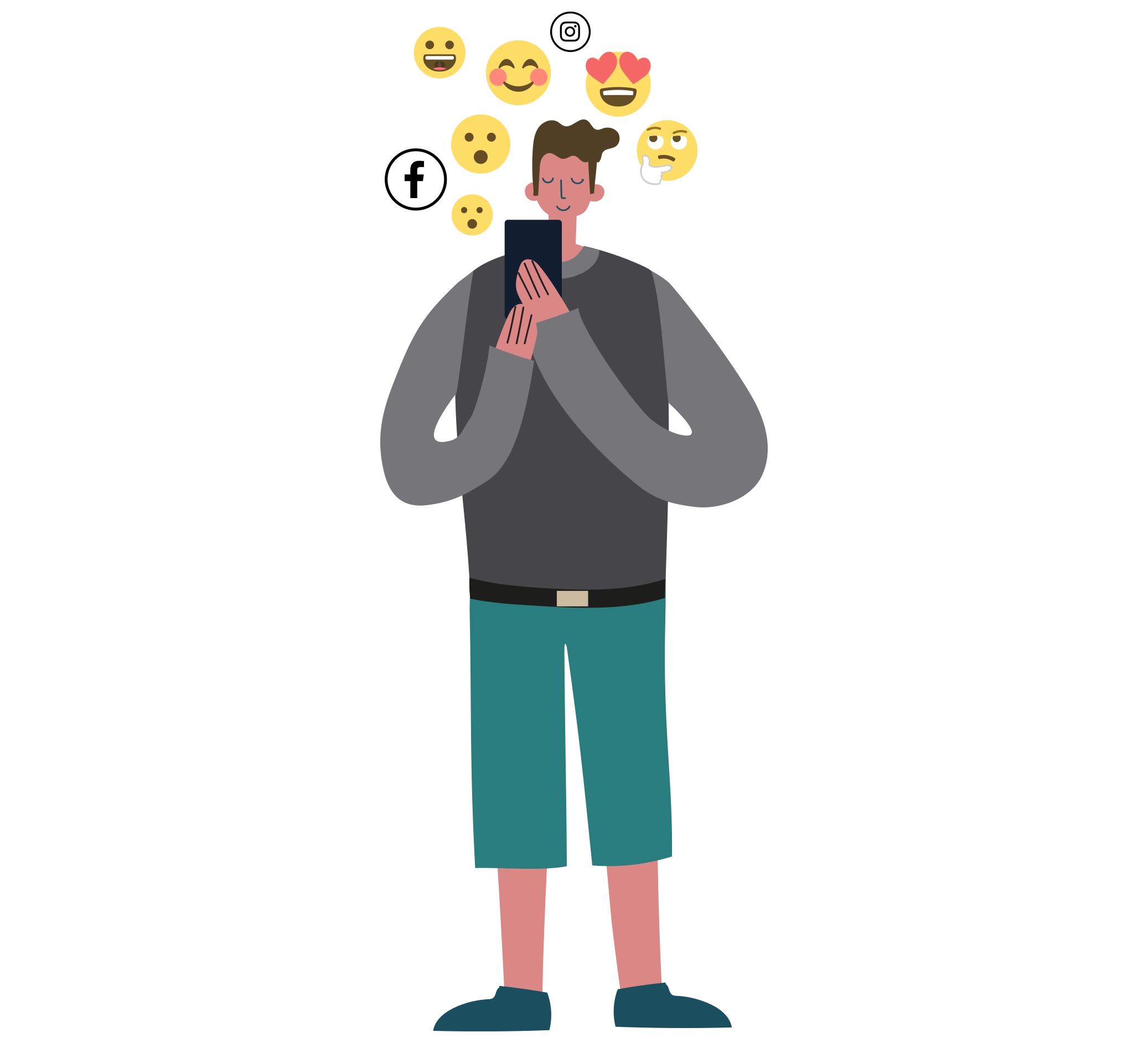Research
Our Einstein Research Unit „Coping with Affective Polarization“ (ERU-CAP) consists of five interconnected research streams that tackle our overarching
research aims: Monitoring affective polarization, Understanding its mechanisms and influencing factors at the individual, social interaction and civil society group level, as well as Navigating affective polarization and its negative effects by fostering social cohesion.
At the heart of our research is the Berlin Polarisation Monitor, a large-scale, long-term survey designed to track the dynamics of affective polarization over time. Building on this data infrastructure and additional data collections, the three research streams – “Individuals”, „Social Interactions“ and „Civil Society Groups“ – explore the mechanisms of affective polarization and the factors influencing its development. Our goal is to identify resources that empower individuals and civil society groups to mitigate the harmful consequences of affective polarization.
The empirical insights gained from these research streams will inform the Civil Society Interventions Lab, where we collaborate closely with civil society partners to develop and implement impactful interventions at both the individual and group levels.
Our Research Streams
Principal Investigators:
Prof. Dr. Thorsten Faas, Dr. Denis Gerstorf, Prof. Dr. Hanna Schwander, Prof. Dr. Jule Specht, Prof. Dr. Céline Teney
Associate Researchers:
Dr. Bastian Becker, Luke Shuttleworth
Based on a large-scale longitudinal panel survey that monitors feelings of in-group affinity and out-group aversion, the Berlin Polarization Monitor is the key data infrastructure of the Einstein Research Unit. By focusing on polarization trends across Germany, the BPM fills a critical gap in longitudinal data on affective polarization in multi-party democracies.
The Berlin Polarization Monitor captures both the degree and dynamics of affective polarization asking questions such as: How pronounced is affective polarization in Germany and across different social contexts? In doing so, the BPM facilitates the assessment of various dimensions of affective polarization, particularly in the context of emotionally charged issues – from long-standing debates (e.g. on climate change) to more current topics such as the German parliamentary elections or the war in Ukraine.
In addition to providing valuable data for academic research, the monitor will regularly communicate its findings to the public, offering an evidence-based foundation for ongoing discussions about public opinion and polarization in Germany.

Principal Investigators:
Prof. Dr. Malek Bajbouj, Dr. Ronja Demel, Dr. David Schieferdecker, Prof. Dr. Hanna Schwander, Prof. Dr. Jule Specht
Associate Researchers:
Dr. Nadine Knab, Dr. Larissa Knöchelmann, Dr. Lucas Köhler
Individuals differ in their susceptibility to affective polarization and in the nature and intensity of their responses to it. For example, some individuals show a stronger tendency than others to sort people into in-groups and out-groups, thereby feeling a stronger connection to like-minded people, while harboring negative emotions towards those with differing views. There are also individual differences in behaviors related to affective polarization, ranging from the ability to cooperate and show tolerance to engaging in hate speech and violent behavior. Moreover, individuals vary in how they cope with affective polarization and its negative consequences. These attitudinal and behavioral tendencies are influenced by a range of individual factors, including personality traits, emotional regulation skills, and mental health.
By integrating perspectives from Psychology, Psychiatry, and the Social Sciences, this research stream aims to generate a comprehensive understanding of such psychological foundations of affective polarization. We focus on the three key research Personality Characteristics,
Socio-Emotional Competencies, and Mental Health.

Principal Investigators:
Dr. Denis Gerstorf, Prof. Dr. Ursula Hess, Prof. Dr. Jan Slaby, Prof. Dr. Christian von Scheve
Associate Researchers:
Dr. Diego Dametto, Dr. Stefanie Hechler
Social encounters play a crucial role in affective polarization. Even though positive interactions between individuals with opposing political views are often regarded as a means to reduce hostility, such interactions may reinforce polarization.
The Research Stream “Social Interactions” seeks to advance our understanding of the
psycho-social mechanisms that shape social interactions within and between politicized groups, and how they influence affective polarization.
In particular, we are interested in nonverbal behavior and emotional expression in political encounters, such as emotional contagion and mimicry to observe how emotions are transferred between individuals. In political contexts, these emotional experiences can promote
social cohesion and mutual understanding, but they can also drive the emergence of collective emotions and political mobilization.

Principal Investigators:
Prof. Dr. Swen Hutter, Prof. Dr. Barbara Pfetsch, Prof. Dr. Simon Koschut
Associate Researchers:
Dr. Clara van den Berg, Dr. Rico Neuman
>> FINALER TEXT FOLGT >>> In our Research Stream “Civil Society Groups” we aim to address three key research areas, focusing on the following research questions:

Principal Investigators:
Prof. Dr. Malek Bajbouj, Dr. Ronja Demel, Prof. Dr. Thorsten Faas, Dr. Denis Gerstorf,
Prof. Dr. Simon Koschut
Associate Researcher:
Dr. Nadine Knab
In our Civil Society Interventions Lab, we aim to develop and test various intervention strategies
to effectively mitigate the detrimental effects of affective polarization at both the individual and group levels.
Using a range of scientific methods, we translate our ERU-CAP research findings into targeted interventions, such as supporting individuals in managing stress related to affective polarization and promoting constructive interactions between opposing civil society groups.
We collaborate closely with our partners from civil society organizations to ensure the feasibility and real-world applicability of the intervention strategies developed.





